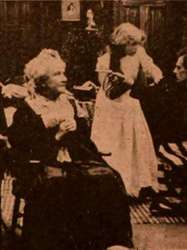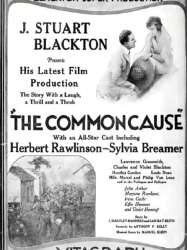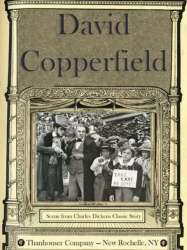The Mermaid est un film américain de genre Comédie avec Violet Heming
The Mermaid (1910)

Si vous aimez ce film, faites-le savoir !
OrigineEtats-Unis
Genres Comédie
The Mermaid is a 1910 American silent short comedy produced by the Thanhouser Company. The film focuses on John Gary, a hotel owner, who wants to revitalize his business. After reading about a reported mermaid sighting, he has his daughter Ethel pose as a mermaid and gets a newspaper reporter to witness and photograph the mermaid. The publicity results in the hotel becoming famous, but Ethel eventually discloses the joke to the guests of the hotel in her mermaid suit. The film was released on July 29, 1910 and was met with mostly positive reviews. The film is presumed lost.
Synopsis
Though the film is presumed lost, a synopsis survives in The Moving Picture World from July 30, 1910. It states: "John Gary runs a summer hotel at a charming spot on the seashore, but he has been unable to induce people to stop there, and at the opening of the picture he is seen lamenting the fact that there is not a single guest name on his hotel register. At this juncture his daughter Ethel returns from school. Ethel is an expert swimmer, and on reading in the paper the rumor that a mermaid has made several appearances in the water of the Atlantic, he decides to have his daughter pose as the mysterious lady of the sea. He wisely conjectures that a handy mermaid will bring guests. With Ethel clad in appropriate costume, and seated upon the rocks in true mermaid fashion, her father persuades the reporter of the local paper to take a look at the phenomenon. The newspaper man is greatly impressed with the spectacle and obtains a photo of the mermaid, which he publishes. The mermaid gains wide publicity - and vacationists arrive from near and far to see her. Tom, Dick and Harry, a trio of city sports, jump into bathing suits and the water, each bent on capturing the mermaid. She eludes them all, however, and the mystery is not cleared up until Ethel, in a pre-tailored suit, presents herself to the guests and explains the joke. By this time Gary's hotel is famous and the owner is certain of a big summer business.Acteurs
Commentaires
Postez un commentaire :
Suggestions de films similaires à The Mermaid
Il y a 60 films ayant les mêmes acteurs, 37193 ayant les mêmes genres cinématographiques, pour avoir au final 70 suggestions de films similaires.Si vous avez aimé The Mermaid, vous aimerez sûrement les films similaires suivants :

Not Guilty (1910)
Origine Etats-Unis
Genres Drame
Acteurs Frank Hall Crane, Violet Heming, Marie Eline
The film begins with Harry Martin saying goodbye to his blind mother before leaving the house. About this time Joinville, a thief, has committed a robbery and is being chased down the street by the policemen. Harry and the thief encounter each other on the street and a struggle ensues, Joinville slips the stolen purse into his pocket before fleeing. The police encounter Martin and find the stolen purse before promptly arresting him. Harry's sweetheart visits Martin's mother and the police take Harry to his apartment. Harry bids his mother and his sweetheart goodbye, an inter-title car states that Harry does not want his mother to know he has gone away on a journey instead of to jail.

The Common Cause (1919)
Réalisé par James Stuart Blackton
Origine Etats-Unis
Genres Drame, Comédie
Thèmes Adaptation d'une pièce de théâtre
Acteurs Effie Shannon, Marjorie Rambeau, Violet Heming, Julia Arthur, Herbert Rawlinson, Sylvia Breamer
Note65%






Lena Rivers (1910)
Origine Etats-Unis
Genres Drame
Acteurs Violet Heming, Frank Hall Crane
Though the film is presumed lost, a synopsis survives in The Moving Picture World from August 13, 1910. It states: "At the opening of the play, Granny Nichols' only daughter is leaving the farm to go to the city in search of employment. We next find her in the city, married to a wealthy man who has forbidden her to make their marriage public as he is afraid his family will object. One day, after a year of happy married life, the husband leaves his wife and baby daughter to go downtown on business. Through a case of mistaken identity, he is arrested, and before he can prove his innocence, to the satisfaction of the police, his wife - believing him to have deserted her - takes her baby and returns to her mother. The husband, upon regaining his freedom and returning home, finds only a note from his wife saying that he will never see her or the baby again. He mourns his loved ones as dead, thinking that his wife left him contemplating the death of herself and her child. The mother and child return to the farm and there, with her dying breath, the mother entrusts baby Lena to the care of Granny Nichols. Here, on the farm, Lena grows to womanhood never knowing her father's name. When Lena is 16 her Uncle John decides to take his mother to live with him in the city. Granny refuses to leave without Lena, so she also moves to Uncle John's home. In the meantime, Lena's father is a frequent visitor to the home of Uncle John, whom he little thinks is any relation to his dead wife. Here he meets Lena, and espying a locket containing the picture of her mother, which she wears around her neck, recognizes her as his daughter. Not only this but lucky Lena is enabled to marry the man she loves.

Daddy's Double (1910)
Réalisé par Lloyd Lonergan
Origine Etats-Unis
Genres Comédie, Romance
Acteurs Frank Hall Crane, Fred Santley
Note52%





At the Post's home, Hal Dunton sits down with his love interest Sue Post, cautiously checking to see if they are alone. Hal then proposes to Sue and in the excitement, her father comes into the room. He is outraged and believes his daughter is too young to be married and promptly makes Hal leave before scolding his daughter. Before departing, Hal meets and pleads with the father as he takes the daughter away by car. The father refuses and Hal is knocked down before the father and daughter depart to a boarding school. The father meets with the mistress and leaves Sue in her care, much to Sue's distress.

The Best Man Wins (1910)
Origine Etats-Unis
Acteurs Frank Hall Crane, Martin Faust, Marie Eline
Though the film is presumed lost, a surviving synopsis was published in The Moving Picture World. It states: "Julia Seaton, a rich heiress, has two suitors, Dr. John Seymour, a wealthy physician, and Richard Calhoun, a poor lawyer. They both propose in the same evening, but while inclined to prefer John, Julia has not yet made a definite choice, and tells both to come back in a month for their answer. The scene shifts to the squalid home of the charwoman, Mrs. Smith, who, ill in bed and unable to earn the rent money, is about to be evicted with her tiny daughter May. The mother faints from weakness, and May rushes for a doctor. She sees Seymour's sign in a window, and asks him to help her mother. Then the man shows his caliber. Because she has no money, he turns her away. Calhoun, the lawyer, meets May, learns of her plight, and, although poor, pays the overdue rent, and the family moved back in the house. But the privation she has suffered proved fatal to the mother and tiny May is left an orphan. On her death bed, Mrs. Smith is found by Miss Seaton, who is visiting the poor quarters on charity work, and on the charwoman's passing, society girl adopts poor little May. The child becomes a happy member of the Seaton family and at the end of the month is a fast friend of the kind-hearted Julia. At the end of a month, too, Julia prepares to decide who shall be her life partner, as promised. But it is little May who really decides. At sight of Seymour, she recalls the physician who turned her away, and denounces him to his own and Miss Julia's face. May recognizes Calhoun as the friend in need, and tells Miss Julia so. The latter feels that Calhoun is a real man and would make a splendid husband, so it's a cinch that 'the best man wins.

An Assisted Elopement (1910)
Origine Etats-Unis
Acteurs Frank Hall Crane, Violet Heming, Alphonse Ethier
The film is presumed lost as no known surviving copies of the film exist. A synopsis of the film was published in The Moving Picture World. It states: "Glade and Sears are next door neighbors and old friends. Glade has a daughter, while Sears has a son. The young people have never met, being away at school while the old folks have been cementing their friendship. As the two men own adjoining places, they believe that the best thing for the younger people to do is to get married. So they try to bring this about. Gladys Glade and Charlie Sears meet on the train while they are returning home and start a flirtation. Perhaps they would have married in the end, if the old folks hadn't 'butted in.' As it is, they lose all interest in each other. Then the fathers try another tack. They decide to be bitter enemies in public, hoping the opposition will bring the children together. The new plan works like a charm, and Gladys and Charlie, realizing their parents' shortcomings, decide to elope. They do so, much to the satisfaction of Glade and Sears.

David Copperfield (1911)
Réalisé par George Nichols, Theodore Marston
Origine Etats-Unis
Genres Drame
Acteurs Mignon Anderson, Marie Eline, Florence La Badie, Frank Hall Crane, Maude Fealy, William Garwood
Note60%






La Case de l'oncle Tom (1910)
Origine Etats-Unis
Genres Drame
Thèmes Esclavagisme, Le racisme
Acteurs Frank Hall Crane, Marie Eline
L'Oncle Tom et Eliza sont tous deux esclaves de la même maison dans le Kentucky.

Paul and Virginia (1910)
Origine Etats-Unis
Genres Drame, Romance
Acteurs Violet Heming, Frank Hall Crane
Though the film is presumed lost, a synopsis survives in The Moving Picture World from November 19, 1910. It states: "Paul and Virginia are two young lovers who have grown up together from babyhood. Their widowed mothers lived near each other in rude cottages, on an island in the Indies, on which there are few inhabitants. Here the children are reared, knowing no play fellows but each other. When Virginia is 16 years of age, her mother receives a letter from a wealthy aunt in Paris, who offers to make Virginia her heir and give her a good education, providing Virginia will, in the future, make her aunt's home her own. Virginia's mother, having lost her own fortune through marrying against the will of her family, feels that she must not let her daughter suffer the poverty that she has been compelled to endure. She accordingly insists upon Virginia's acceptance of her wealthy relatives offer. Virginia thereupon sets sail for France, leaving Paul broken-hearted at her departure. Virginia tries to be a dutiful niece to her aunt, who is very old and sickly, although she longs to return to her humble home and Paul, whom she dearly loves. When, however, the aunt insists that she marry a rich nobleman, Virginia refuses; her aunt disowns the girl and sends her back to the island home. Virginia's ship arrives at the Indies during a hurricane, and although a cable's length from shore, it sinks before help can reach it, and Virginia is drowned. Paul witnesses her death from the shore, and almost loses his own life in a vain attempt to save her.

John Halifax, Gentleman (1910)
Origine Etats-Unis
Acteurs Martin Faust, Frank Hall Crane, William Russell, Violet Heming
Though the film is presumed lost, a synopsis survives in The Moving Picture World from December 3, 1910. It states: "John Halifax, an orphan, trudges to town to make his fortune. There he is befriended first by Ursula March, the daughter of the richest man in town, who gives him food, and later by Abel Fletcher, a rich Quaker. Fletcher's invalid son takes a great fancy to John, and through his influence John is employed in his father's mill. After five years of faithful work, John has risen to the position of foreman. He and Fletcher's son, Phineas, had become fast friends. Against the wishes of his father, Phineas persuades John to take him to a theatre. The trip proves too much for the invalid, and John carries him home from the theatre in a fainting condition. Fletcher is furious with John, and drives him from the house. About this time there is a great discontent at the mill, among the workmen. Fletcher decides to close it down. After six weeks of starvation, the workmen and their families come in a crowd to the mill and demand that they be given the grain which is stored there. Rather than accede to their demands, Fletcher hurls the bags of grain into the river. This so infuriates the mob that they try to set fire to the mill and put an end to Fletcher. Unable to control the mob, John helps Fletcher, his son and Ursula, to escape. Finally he wins Fletcher's consent to compromise with the men. Realizing that he owes his property and life to John, Fletcher asks his forgiveness for his former harsh treatment. John becomes Fletcher's adopted son and wins Ursula for his bride.
 Connexion
Connexion


